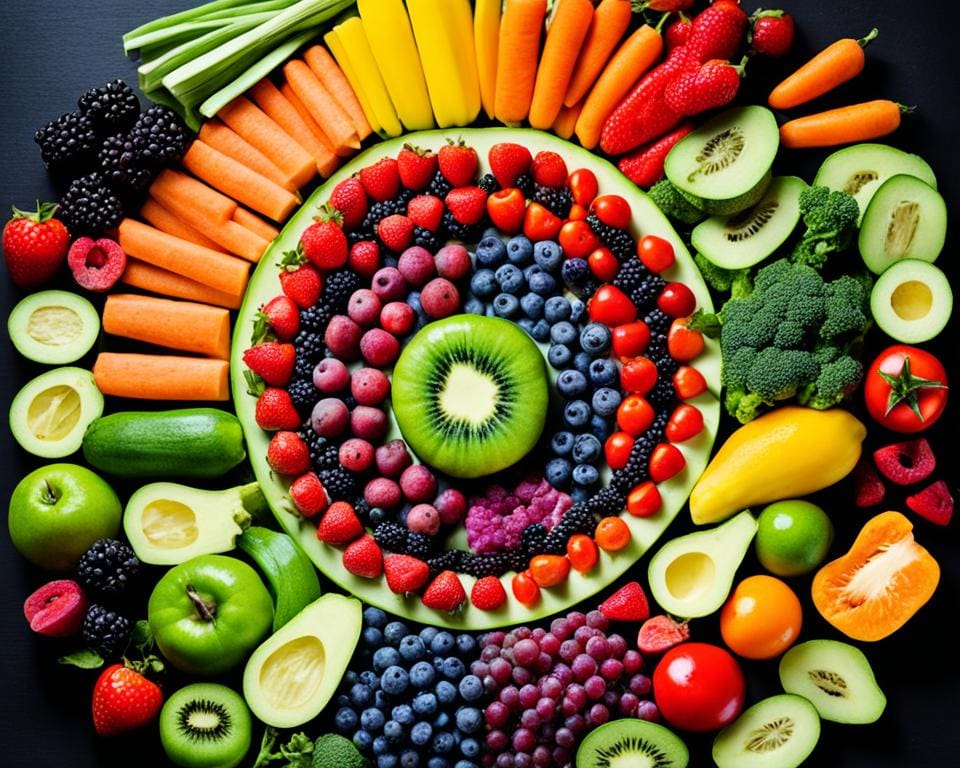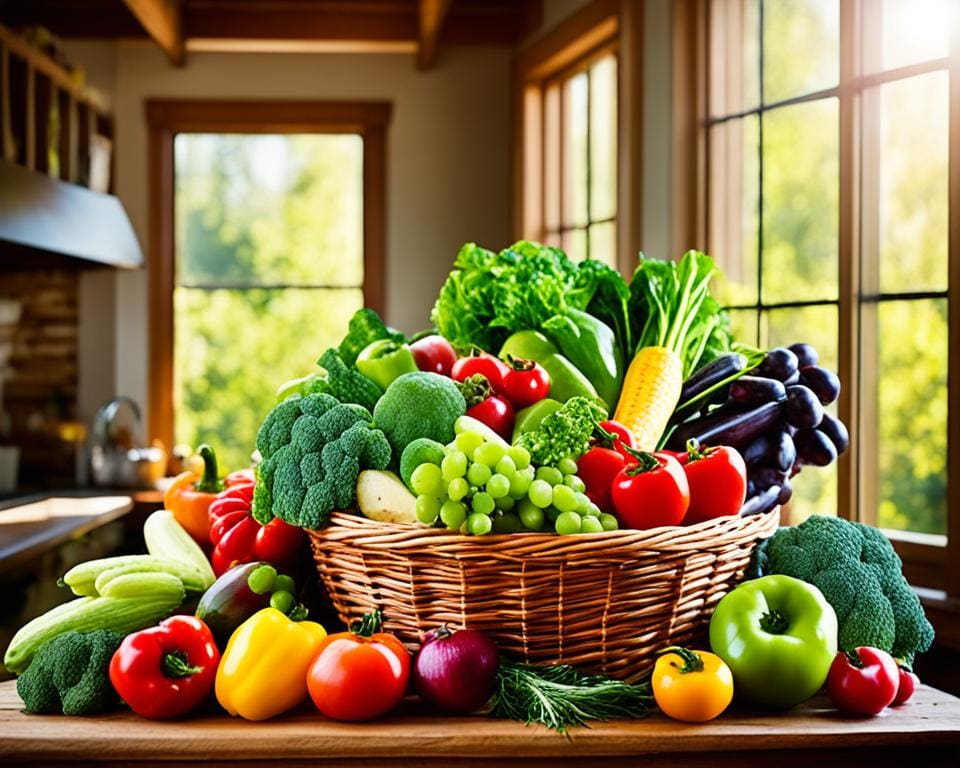Nutrient-dense foods can boost your health and wellness. These superfoods are full of vitamins, minerals, and antioxidants. They help build a balanced diet and support your body’s functions.
Focus on whole, unprocessed foods rich in nutritional value. This approach can improve your healthy eating habits and help you reach wellness goals.
Eat a mix of nutrient-dense foods for the best results. No single food has all the vitamins and minerals you need.
Include antioxidant-rich fruits and vegetables in your meals. Add protein-packed lean meats and seafood to your diet.
These superfoods can boost energy and support your immune system. They also promote clean eating and increase dietary fiber intake.
Understanding Nutrient-Dense Foods
Nutrient-dense foods pack essential vitamins, minerals, and beneficial compounds. They have low saturated fat, added sugars, and sodium. These foods offer high nutrient concentration per calorie, ideal for a balanced diet and optimal health.
What Are Nutrient-Dense Foods?
Nutrient density is the nutrients a food contains compared to its calories. Whole foods like fruits, vegetables, lean proteins, and whole grains are nutrient-dense.
These foods are rich in vitamins, minerals, dietary fiber, and antioxidants. Such nutrients are vital for maintaining overall well-being.
The Importance of a Nutrient-Rich Diet
Eating various nutrient-dense foods ensures your body gets needed vitamins and minerals. The typical American diet is often energy-rich but nutrient-poor.
This poor diet can increase the risk of chronic diseases like obesity and heart disease. Focusing on whole, nutrient-dense foods supports overall health and reduces these risks.

“Eating a variety of nutrient-dense foods can provide the essential vitamins, minerals, and other beneficial compounds your body needs to function optimally and reduce your risk for chronic diseases.”
Nutrient-Dense Foods to Add to Your Diet
Adding nutrient-dense foods to your diet is key for optimal health. These ingredients provide essential vitamins, minerals, and beneficial compounds. Let’s explore some top nutrient-dense foods you can easily add to your meals.
Fatty Fish: Salmon and Sardines
Salmon and sardines are nutritional superstars. They’re rich in omega-3 fatty acids, which boost heart health and brain function. These fish also provide high-quality protein and important vitamins and minerals.
Leafy Greens: Kale and Spinach
Kale and spinach are nutrient-dense leafy greens. They’re packed with vitamins, minerals, and antioxidants. Adding these greens to your meals can boost your nutrient intake significantly.
Berries: Blueberries and Strawberries
Blueberries and strawberries are tasty and rich in antioxidants and fiber. They support a healthy immune system and improve brain function. Enjoy them fresh, frozen, or in smoothies and salads.
Eggs
Eggs are a nutritional powerhouse. They provide high-quality protein, vitamins, and beneficial compounds like choline and lutein. Eggs are versatile and can be enjoyed in many ways.
Nuts and Seeds
Nuts and seeds are packed with healthy fats, protein, and fiber. They also contain various vitamins and minerals. Add these crunchy snacks to your meals for a nutritional boost.
Including these foods in your diet provides essential nutrients and compounds. A balanced diet with whole, unprocessed foods is key to optimizing your health. Aim for variety to get the most nutritional benefits.
“Eating a nutrient-dense diet is one of the most powerful ways to support your overall health and wellbeing.” – Registered Dietitian, Sarah Johnson
Tips for Adding More Nutrient-Dense Foods
Boost your diet’s nutrient density with simple swaps. Choose whole grains like whole-wheat bread, brown rice, and quinoa. These options pack essential nutrients and fiber.
Whole grains are linked to lower risks of chronic diseases. They’re a better choice than refined carbs like white bread and pasta.
Choose Whole Grains Over Refined Carbs
Add more fruits and vegetables to your meals and snacks. Aim for various colors to get a wide range of nutrients. Try to eat at least 5 servings of fruits and veggies daily.
Incorporate More Vegetables and Fruits
For protein, pick lean sources like poultry, fish, legumes, and eggs. These options provide protein without excess fat or calories. They support a balanced diet and clean eating approach.









